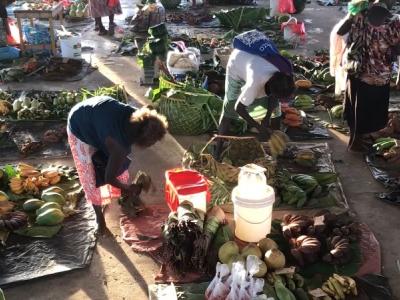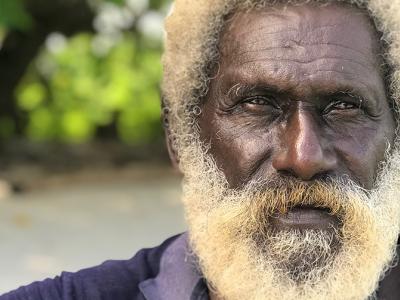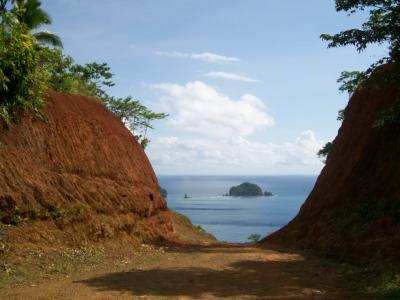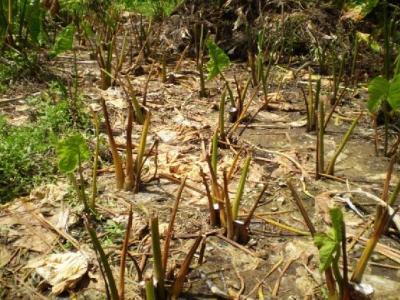Climate change will be a major impediment to the achievement of sustainable development in Solomon Islands, as all economic and social sectors are likely to be adversely affected, and the cost of adaptation will be disproportionately high, relative to gross domestic product (GDP). In attempting to integrate adaptation strategies into its sustainable development agenda, Solomon Islands will be confronted by many challenges including insufficient resources, prioritization of adaptation measures and uncertainties over climate change projections and adaptation strategies. The need to implement adaptation measures with some urgency has been often reinforced by the adverse impacts already being experienced in the country and highlighted in numerous national and regional workshops, meetings and conferences. It has been suggested that risk-reduction strategies together with other sectoral policy initiatives in areas such as sustainable development planning, disaster prevention and management, integrated coastal zone management and health care planning should be employed. The Solomon Islands National Adaptation Plan of Action (NAPA) has determined, through a broad national consultative process, that agriculture, human settlements, water and sanitation and human health are priority vulnerable sectors requiring urgent support to enhance resilience against the predicted impacts of climate change.
The majority of the population of 571,000 live in rural areas and are predominantly dependent on agriculture, forestry and fisheries for food security and livelihoods. The 84% of people living in rural areas (World Bank 2007) rely mainly on their traditional food production systems, traditional knowledge, and strong communal systems and on agriculture, fishing and small business activities to support livelihoods. The majority of rural dwellers reside on hilly and mountainous areas and along very low lying coastal areas with very high exposure to abnormal and extreme weather and climatic events. The Coalition of National Unity and Rural Advancement (CNURA) Government Statement of Policy, delivered to the country by the Prime Minister on 18 March 2008 includes as national objective “to ensure the sustainable utilization and conservation of natural resources and environment and successful adaptation to climate change”. This policy commitment was further strengthened by the Cabinet endorsement of that NAPA in late 2008. The Ministry of Environment, Conservation and Meteorology (MECM), through its Climate Change Division, coordinates the implementation of the government policy on adaptation to climate change, key priority areas of NAPA, and disaster risk reduction and climate change adaptation strategies. The MECM Corporate Plan 2008-2010 is undergoing review with views of integrating NAPA priority areas and climate change adaptation.
There are a variety of initiatives designed to assist the Solomon Islands in assessing and documenting vulnerabilities and in finding adaptation solutions that are acceptable to the local communities. For example, a grant has been provided to the Solomon Island Development Trust (SIDT) supported the Babanakira and Kolina people in enhancing traditional coping strategies to build their resilience to cope with disasters, merging these practices, where necessary, with modern scientific and technical knowledge. Traditional leaders of the Ontong Java and Sikaiana atolls have raised the alarm on low fresh water supply and taro crops not growing well as their islands begin facing the full effects of climate change. Moreover, there are also a number of adaptation programmes still in the proposed state. Current activities include: community initiatives (e.g. raised beds) to address extreme seasonal high tides, sea level rise and soil improvement programmes; mangrove replanting (on a very low scale); rain water harvesting; establishment of root crop bulking and distribution; the introduction of salt tolerant and drought resistant crop varieties; mass propagation of available planting material; and soil improvement programmes. An important contribution at the regional and community level is the Pacific Adaptation to Climate Change Project (PACC). The project is designed to promote climate change adaptation, and is based on the premise that adaptation is a key pre-requisite to sustainable development in Pacific Island Countries. One of the few projects globally to access the Special Climate Change Fund of the GEF, this Regional UNDP/GEF Project covers 13 countries (including the Solomon Islands) and is being implemented by SPREP. The objective of the PACC is to enhance the resilience of a number of key development sectors (food production and food security, water resources management, coastal zone, infrastructure etc.) in the Pacific islands to the adverse effects of climate change. This objective will be achieved by focusing on long-term planned adaptation response measures, strategies and policies. To ensure sustainability of the project, regional and national adaptation financing instruments will also be developed.










